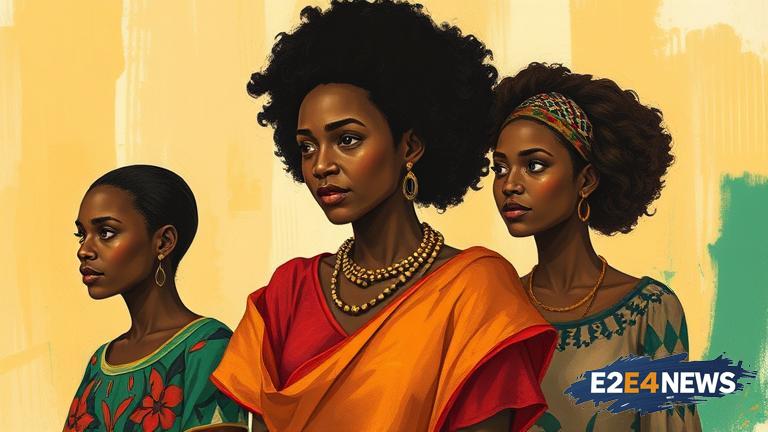Women and girls of African descent are an integral part of the global community, bringing with them a rich cultural heritage and a wealth of contributions. Despite facing numerous challenges, including racism, sexism, and social inequality, they continue to thrive and make a positive impact on society. In recent years, there has been a growing recognition of the importance of celebrating and empowering women and girls of African descent. This includes acknowledging their achievements, providing them with opportunities for education and economic empowerment, and addressing the systemic barriers that prevent them from reaching their full potential. One of the key challenges faced by women and girls of African descent is racism, which can manifest in many different ways, including discrimination, marginalization, and exclusion. This can have a profound impact on their mental and physical health, as well as their ability to access education and employment opportunities. Another significant challenge is sexism, which can lead to gender-based violence, limited access to reproductive healthcare, and a lack of representation in positions of power. Despite these challenges, women and girls of African descent are resilient and determined, and they continue to make significant contributions to their communities and societies. They are leaders, innovators, and change-makers, and their voices and perspectives are essential to creating a more just and equitable world. In order to empower women and girls of African descent, it is essential to address the systemic barriers that prevent them from reaching their full potential. This includes providing them with access to quality education, economic opportunities, and healthcare, as well as creating safe and supportive communities that allow them to thrive. It also requires a fundamental transformation of the social and economic structures that perpetuate inequality and discrimination. By celebrating the contributions and achievements of women and girls of African descent, we can help to create a more inclusive and equitable society that values and respects the diversity of all individuals. This includes recognizing their history, culture, and experiences, and providing them with opportunities for leadership and representation. It also requires a commitment to addressing the root causes of inequality and discrimination, and working towards a world that is more just and equitable for all. The empowerment of women and girls of African descent is not only a moral imperative, but also a necessary step towards creating a more prosperous and sustainable world. By investing in their education, health, and economic empowerment, we can help to unlock their full potential and create a brighter future for themselves, their communities, and society as a whole. Furthermore, it is essential to recognize the importance of intersectionality in addressing the challenges faced by women and girls of African descent. This includes acknowledging the ways in which racism, sexism, and other forms of oppression intersect and compound, and working to address these intersections in a comprehensive and nuanced way. By taking an intersectional approach, we can help to create a more inclusive and equitable society that values and respects the diversity of all individuals. In addition, it is crucial to involve men and boys in the efforts to empower women and girls of African descent. This includes educating them about the importance of gender equality and the ways in which they can support and ally with women and girls of African descent. By working together, we can help to create a more just and equitable world that values and respects the diversity of all individuals. Ultimately, the empowerment of women and girls of African descent requires a long-term commitment to addressing the systemic barriers that prevent them from reaching their full potential. This includes providing them with access to quality education, economic opportunities, and healthcare, as well as creating safe and supportive communities that allow them to thrive. It also requires a fundamental transformation of the social and economic structures that perpetuate inequality and discrimination. By working together, we can help to create a more inclusive and equitable society that values and respects the diversity of all individuals, and unlocks the full potential of women and girls of African descent.
